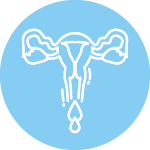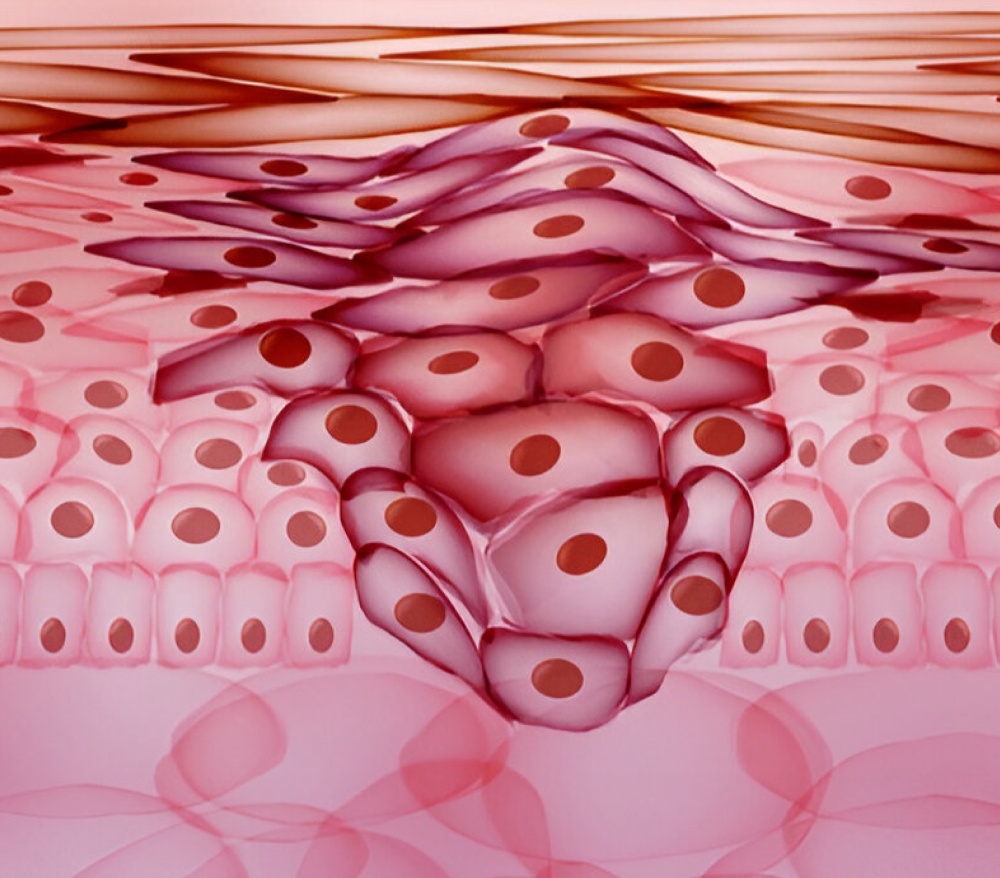Ovarian Cancer Treatment in India
Ovarian CANCER

Ovarian cancer care at Thangam cancer center
Ovarian cancer is a type of cancer that begins in the ovaries—part of the female reproductive system located on either side of the uterus. These glands produce eggs and vital hormones like estrogen and progesterone. Unfortunately, ovarian cancer often develops silently and is detected at an advanced stage in nearly 70% of cases, when it may have already spread within the abdominal cavity.
At Thangam Hospital, Namakkal, our expert gynaecologic oncologists are equipped with the latest technology and multidisciplinary approaches to diagnose and treat ovarian cancer with precision and compassion.
Risk Factors and Causes of Ovarian Cancer
While the exact cause remains unclear, several factors can increase the risk:
Age
Most cases occur in women over 50
Infertility
Nulliparous women or those undergoing fertility treatment may face a higher risk
Genetic Mutations
BRCA1, BRCA2, and Lynch syndrome are linked to ovarian cancer
Family History
A close relative with ovarian or breast cancer raises your risk
Hormone Replacement Therapy (HRT) and Endometriosis may also be contributing factors

Symptoms of Ovarian Cancer
Ovarian cancer symptoms are often vague and can easily be mistaken for common digestive or urinary issues,
leading to delays in diagnosis. Watch for these warning signs:

Persistent abdominal
bloating or swelling

Feeling full quickly while eating (early satiety)

Discomfort or pressure in the lower abdomen

Changes in bowel or
bladder habits

Unexplained weight loss

Abnormal vaginal bleeding

Frequent urination or constipation
If these symptoms persist for more than 2–3 weeks, consult a specialist promptly.

Types of Ovarian Cancer
Ovarian cancers are classified based on the origin and cell type:
1. Epithelial Tumours (Most Common)
Originate in the outer layer of the ovary.
- Serous papillary carcinoma
- Mucinous carcinoma
- Clear cell carcinoma
- Brenner’s (transitional) tumour
- Carcinosarcoma or mixed Müllerian tumours
2. Sex Cord-Stromal Tumours
Originate in the hormone-producing cells of the ovary.
- Sertoli cell tumour
- Granulosa cell tumour
- Fibroma, Thecoma
- Leydig cell tumour
- Sertoli-Leydig cell tumour
3. Germ Cell Tumours
More common in younger women.
- Teratoma (mature and immature)
- Dysgerminoma
- Yolk sac (endodermal sinus) tumour
- Mixed germ cell tumours
Diagnosis of Ovarian Cancer at Thangam Hospital
Early and accurate diagnosis is essential for better outcomes. At Thangam Hospital, we use a combination of advanced imaging and pathology tools:
- Physical Examination: Includes pelvic exam and symptom history
- Ultrasound: Abdominal and transvaginal scans help detect suspicious masses
- Blood Tests: Tumor markers like CA-125, CEA, CA 19.9 help assess risk
- CT Scan: Determines tumour size and spread across the chest, abdomen, and pelvis
- MRI Scan: Offers detailed images in early-stage or inconclusive cases
- PET-CT Scan: Detects cancer spread in advanced or recurrent disease
- Diagnostic Laparoscopy & Biopsy: Performed in complex cases to confirm cancer type and stage


Prevention & Screening
While there’s no guaranteed way to prevent ovarian cancer, early detection significantly improves outcomes.
Preventive strategies include:
- Regular gynecological check-ups
- Genetic counselling and testing for BRCA mutations (especially with a family history)
- Oral contraceptive use (linked to reduced risk in some studies)
Stages of Ovarian Cancer
Understanding the stage helps determine the right treatment plan:
Stage I: Confined to one or both ovaries
Stage II: Spread to nearby pelvic structures
Stage III: Cancer has spread to the abdominal lining or lymph nodes
Stage IV: Distant spread to organs like liver or lung
Ovarian Cancer Treatment Options at Thangam Hospital
Treatment depends on the type, stage, and patient’s overall health. Our multidisciplinary team ensures a personalized care plan:
Staging Surgery
- Involves removal of the uterus, both ovaries, pelvic and abdominal lymph nodes, and total omentectomy.
- Typically performed in early-stage cancer or for women who have completed their families.
- In women wishing to preserve fertility, only the affected ovary, lymph nodes, and omentum are removed — known as Fertility Preserving Surgery, with the normal ovary and uterus left intact.
Cytoreductive Surgery
- Performed before or after chemotherapy in advanced ovarian cancer cases.
- In addition to staging surgery, this includes removal of:
- Peritoneum (abdominal lining with cancer deposits)
- Other organs affected by the spread: rectum, colon, small bowel, appendix, gallbladder.
- Chemotherapy is administered as injections, with the regimen depending on the stage of the disease.
- Adjuvant Chemotherapy
- Given after surgery, typically 6 cycles with each cycle lasting 2–3 weeks.
- Neoadjuvant Chemotherapy
- Given before surgery, usually 3 cycles (each cycle lasting 3 weeks).
- Followed by 3 additional cycles post-surgery as part of the adjuvant plan.
- Intraperitoneal Chemotherapy
- A specialized approach for advanced ovarian cancer.
- Chemotherapy is delivered directly into the abdominal cavity via an intra-peritoneal (IP) port placed under general anaesthesia.
- Used during neoadjuvant or adjuvant therapy, especially in cases with peritoneal metastasis.
- Uses drugs that target specific proteins inside cancer cells to kill them selectively.
- Example:
- Bevacizumab, which targets the VEGF protein in ovarian cancer cells, may be used during treatment.
- Aims to minimize damage to healthy cells while improving treatment efficacy.
- Considered in advanced stages of ovarian cancer.
- Also referred to as biological therapy.
- Works by modifying the immune system’s response, enabling it to identify and destroy cancer cells more effectively.
- Focuses on targeting cells that interfere with immune response, enhancing the body’s natural defense mechanisms.






